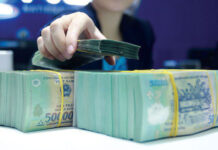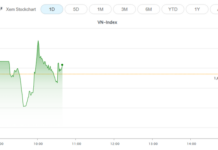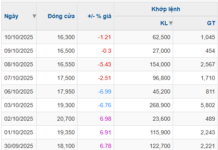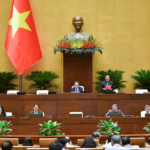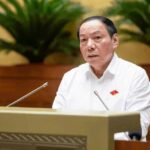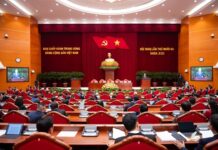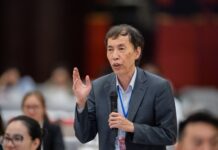Investors Rush In, but Risks Are High
On October 29, the National Assembly discussed in groups the draft Law on Amending and Supplementing a number of articles of the Law on Securities, Accounting Law, Law on Independent Audit, Law on State Budget, Law on Management and Use of Public Assets, Law on Tax Administration, and Law on National Reserves.
A notable point in this law, which amends seven other laws, that was discussed by many National Assembly deputies (NADs) relates to the definition of a professional investor.
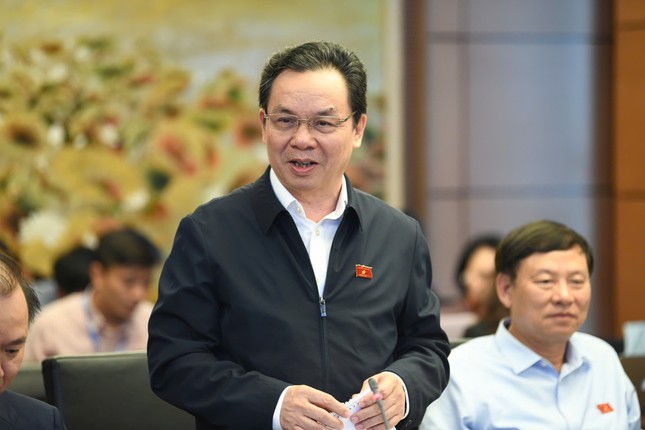
NAD Hoàng Văn Cường (Hanoi delegation). Photo: Như Ý.
NAD Hoàng Văn Cường (Hanoi delegation) assessed that the draft amendment has been very determined in defining what constitutes a professional individual investor and their investment authority.
“This is a revolutionary move, avoiding a situation like in recent years, where many individuals saw high-interest private enterprise bonds and rushed to invest, despite the very high risks,” said Mr. Cường.
Explaining the rationale behind the three-year restriction on bond transfers, Deputy Prime Minister and Minister of Finance Hồ Đức Phớc stated that the regulation aims to encourage investors to focus on developing their businesses and ensuring stability. “However, considering the deputies’ suggestions for more flexibility, we will accept and maintain the previous rule of a one-year restriction,” Mr. Phớc said.
The draft law stipulates that only institutional investors are allowed to purchase private placement bonds, excluding individual investors. According to the NAD, this regulation indicates that enterprises wishing to issue private placement bonds must have a credit rating and asset security.
Thus, enterprises issuing bonds to raise capital must take responsibility. This regulation promotes the development of a healthy bond market and reduces risks and fragmentation.
However, Mr. Cường expressed concern that the draft law also stipulates that professional individual investors investing in private placement bonds must wait three years before transferring them (currently one year) – equivalent to strategic investors.
“This rule is somewhat rigid, reducing the flexibility of capital mobilization in the market,” Mr. Cường stated, suggesting that when raising the bar for professional investment, the restriction on private placement bonds should be kept to one year.
Holding Auditing Units Accountable
Sharing a similar concern, NAD Lê Quân (Hanoi delegation) opined that Vietnam’s bond market has not been developing as per the market regulations, posing latent risks. Several recent cases have occurred due to legal loopholes.
According to Mr. Quân, amending the law will tighten control over this field, reducing risks for investors, especially ordinary people, small-scale investors, and those lacking knowledge and professionalism.
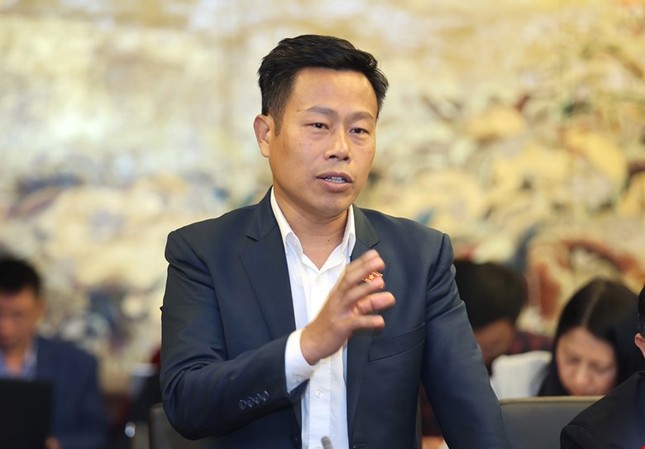
NAD Lê Quân (Hanoi delegation). Photo: QH.
“After the recent incidents, I find it hard to believe that we are giving our money to others to spend. In a context of opacity and lack of control, we perceive risks. When a business faces financial issues, bondholders are a low priority in debt repayment, as the first priority is given to customers, employees, borrowing partners, and then bondholders and shareholders,” said NAD Lê Quân. He suggested that the law should hold auditing units accountable and address the act of “manipulating” the bond market.
The deputy from Hanoi also raised the issue of including regulations on ‘manipulating’ the bond market among the prohibited acts. These prohibited acts could involve manipulating financial reports or creating misleading information.
Referring to the act of manipulating securities (clause 3), NAD Lê Nhật Thành (Hanoi delegation) agreed that there should be regulations to ensure alignment with the Criminal Code, providing comprehensive and practical provisions. Accordingly, he proposed categorizing the acts into two groups: providing incorrect information and creating fake transactions to manipulate securities prices, avoiding repetitive or unclear descriptions of the acts.
“Vietnam’s Cultural Development: A 5-Year Plan Worth Over 122 Trillion Dong”
The total resources mobilized for the Cultural Development Program for the period of 2025-2030 are expected to amount to VND 122,250 billion. For the period of 2031-2035, the expected total mobilized resources for the Program are VND 134,000 billion. This was announced by Minister of Culture, Sports and Tourism Nguyen Van Hung before the National Assembly during a session on November 1st.










